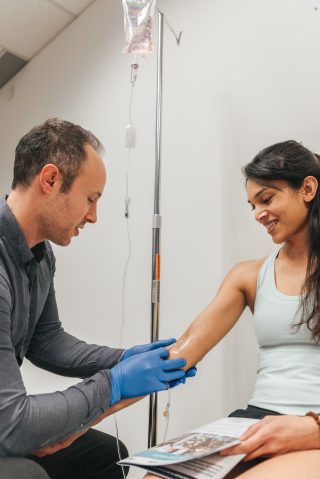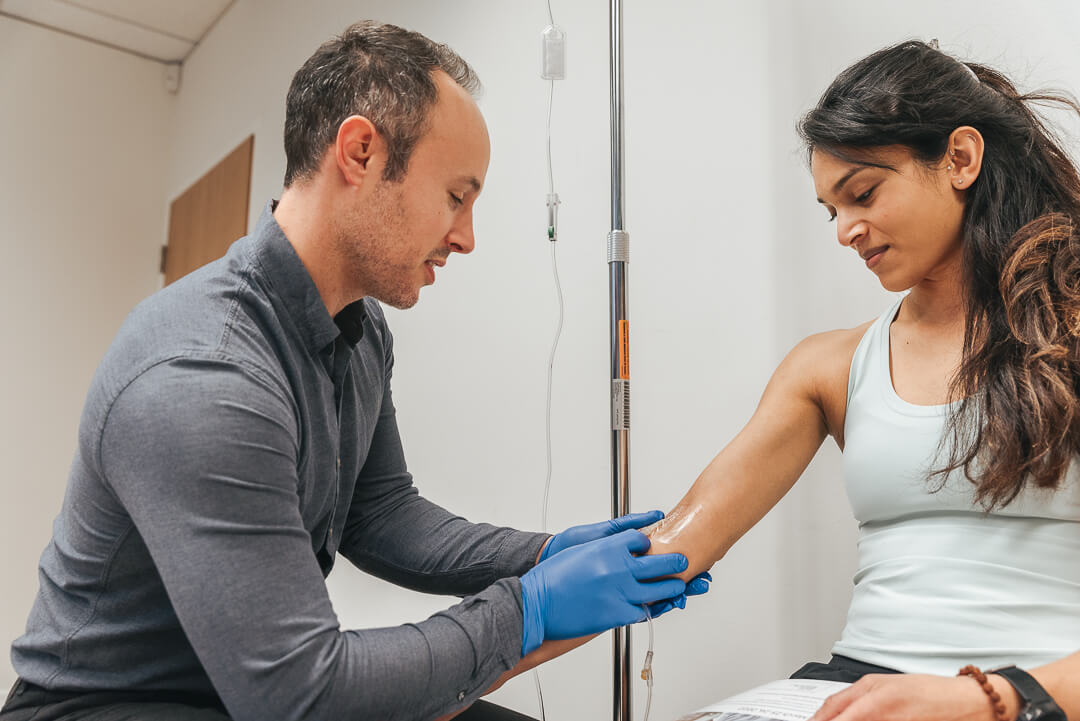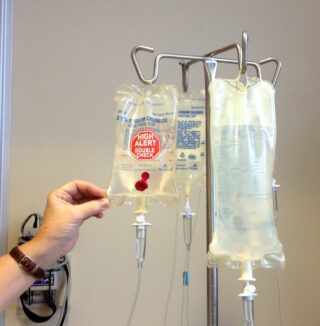The unexpected discovery of metformin, a diabetes drug, as a potential ally in the fight against cancer has truly opened my eyes to the ever-evolving landscape of integrative medicine. Metformin was once only a mainstay in managing diabetes. Now, it is being praised as a promising candidate in the integrative cancer treatment scene. Recent studies are showing a hopeful picture. They suggest that metformin can slow down the growth of prostate cancer cells and reduce the side effects of traditional cancer treatments. As a naturopath in Toronto, I am looking into the benefits of metformin as an integrative approach to improving patient results.
Understanding metformin’s role in cancer therapy
Metformin, a drug that’s been a cornerstone in the fight against diabetes, is now being looked at for its potential in cancer therapy. It’s a pretty exciting time, and the possibilities are both intriguing and promising. Originally used to help manage blood sugar levels in people with type 2 diabetes, metformin has shown some surprising benefits when it comes to treating cancer. Recent research has suggested that metformin might have a big impact on prostate cancer. Some studies have found that metformin can slow the growth of prostate cancer cells, which has made people wonder if it could be a helpful addition to other cancer treatments.
The beauty of metformin’s potential as a cancer-fighter lies in its multi-faceted approach. It targets not just the cancer cells, but also the metabolic pathways and inflammation that make them grow. And here’s the kicker: it seems to play nice with traditional treatments like chemo and radiation, potentially making them more effective and less brutal on the body. This, my friends, could be a game-changer in how we approach cancer care.
Here in Toronto, and in many other cities, naturopaths are leading the charge in integrating metformin into holistic cancer care. They’re the ones exploring how this medication can work in tandem with traditional therapies, aiming for a more comprehensive approach to treatment. By weaving together the best of both worlds—conventional medicine and complementary therapies—they’re striving to offer patients a more personalized and effective strategy. The fact that these trends are emerging speaks volumes about the growing recognition of metformin’s potential to elevate treatment outcomes and patient well-being.

Research findings on metformin and prostate cancer
Recent studies have illuminated the therapeutic potential of metformin in the fight against prostate cancer, with results that could very well reshape how we approach treatment. In the lab, metformin has shown a remarkable ability to hinder the growth of prostate cancer cells. It does this by disrupting the metabolic processes that these cells need to multiply. By throwing a wrench in these metabolic workings, metformin could be a game-changer, slowing the advance of the disease and complementing standard treatments.
Then there are the clinical trials that echo these promising preclinical findings. They tell us that metformin might just be the game-changer we’ve been hoping for. Patients with prostate cancer who take metformin show a slower rate of disease progression when combined with standard treatments, like surgery or chemo.
The metformin and conventional treatments duo is a beacon of hope. It’s like metformin whispers to the cancer cells, “Hey, listen up,” making them more receptive to the big guns of chemo and radiation. This tag team of treatments not only excites oncologists but also offers a ray of hope for kinder, more effective therapies for those battling prostate cancer.
The integrative path I’ve chosen is one that many are embracing these days. It’s about combining the best of both worlds—conventional treatments with complementary therapies. Metformin is becoming more and more important in this whole-body approach.

Integrative approaches to enhancing treatment outcomes
I’ve found that using common treatments with metformin and other whole-body approaches can greatly improve the quality of life and survival rates for prostate cancer patients. Metformin, a well-known drug primarily used for diabetes, has shown promising results in complementing traditional cancer therapies. By enhancing the effectiveness of these treatments and reducing their side effects, metformin offers a valuable tool in the fight against prostate cancer. Clinical trials have demonstrated that metformin can slow cancer progression and improve survival rates, making it an attractive option for many patients.
Here in Toronto, naturopaths are pioneering the integration of metformin with lifestyle changes, offering a more comprehensive approach to prostate cancer care. They’re not just looking at the disease; they’re looking at the whole person, working closely with patients to develop personalized plans. Integrative oncologists are also supportive. They often suggest metformin to help cancer metabolism and inflammation, which are important factors in the disease’s progress. By focusing on these areas, integrative treatments aim to create a more holistic and effective approach to managing prostate cancer.
Next steps for prostate cancer patients considering metformin
If you’re pondering metformin’s role in your prostate cancer journey, the next steps are all about you—a thorough evaluation of your health and some sound medical advice. Properly licensed Naturopathic Doctors are pros at integrative medicine. These folks are the real deal—they look at your health from every angle, blending the best of both conventional and complementary therapies. They can help you figure out how metformin fits into your plan and make sure it’s in sync with your health goals.
When you sit down with your healthcare provider, it’s a must to go over the potential pros and cons of metformin. It’s been quite the star in studies, showing some real promise in the fight against cancer, especially prostate cancer. But, like with anything, there’s a flip side—some folks might experience tummy troubles, and in very rare cases, more serious stuff. Your healthcare provider is your go-to for weighing these factors and figuring out if metformin is the right call for you. The key? Keep those lines of communication open and honest.
Now, let’s talk about how integrating complementary treatments can up the ante on metformin’s effectiveness. I’m all for lifestyle changes, dietary tweaks, and natural supplements that play nice with my conventional treatments. A Naturopath can be a guiding light, helping you choose safe and effective complementary therapies. For instance, loading up on antioxidants and anti-inflammatory goodies through diet can be a game-changer, boosting the body’s cancer-fighting mojo and keeping metformin side effects at bay.
Keeping my finger on the pulse of the latest metformin-prostate cancer research and clinical trials has been pivotal. The medical world is in a constant state of evolution, and each new discovery can be a beacon of hope. By being informed and proactive, I’ve been able to make the best choices for my patients and aim for the most positive outcomes.
By incorporating these steps into your treatment journey, you can take a holistic and informed approach to managing prostate cancer. With the right guidance and a comprehensive treatment plan, you can navigate this challenging time with confidence and hope.









